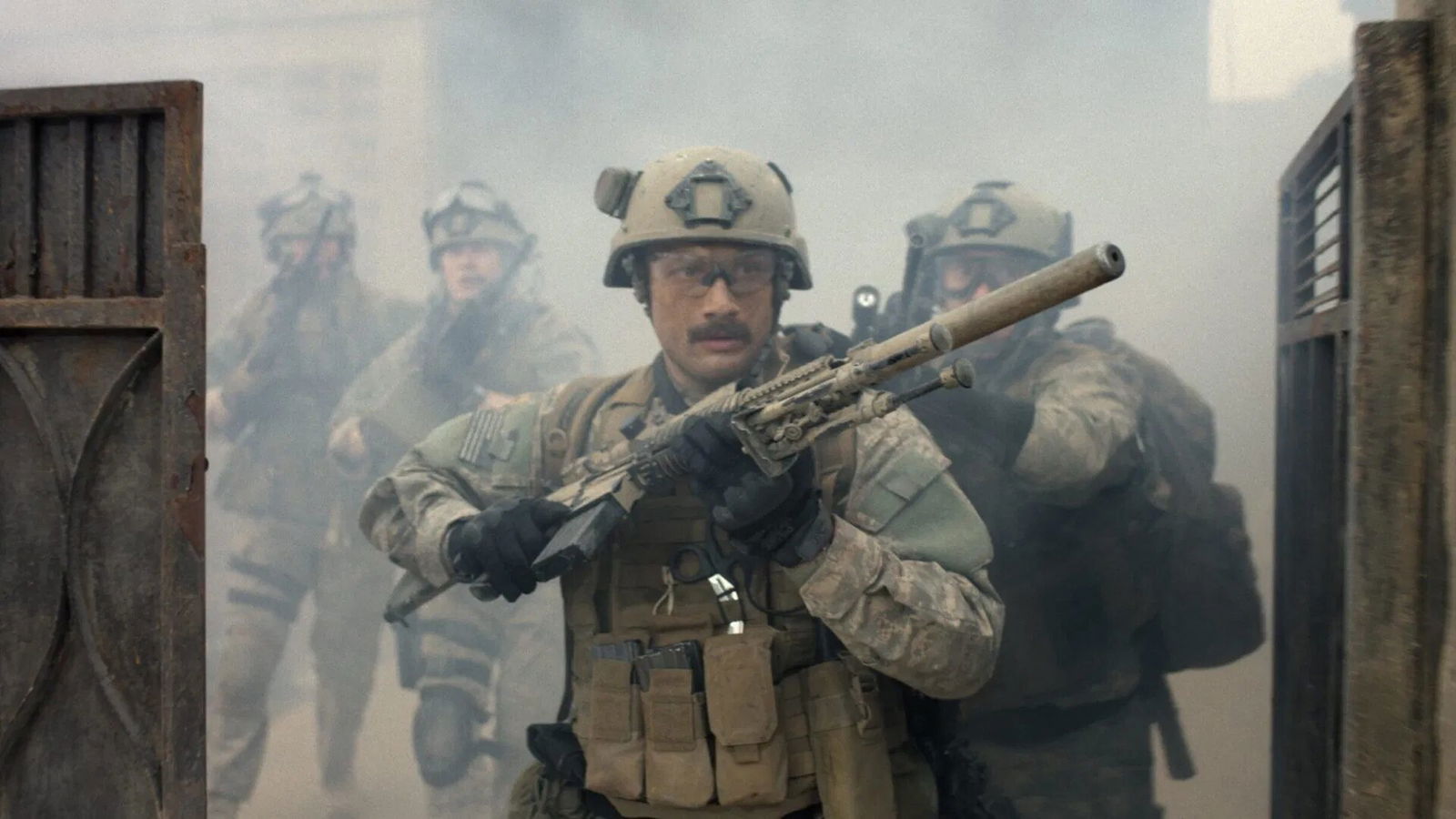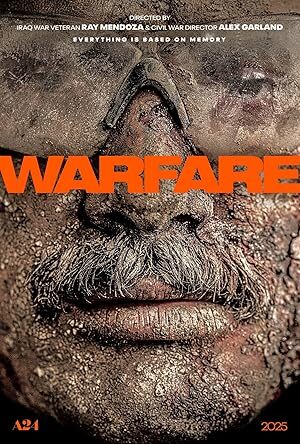Co-writers and directors Alex Garland and Ray Mendoza’s new film Warfare is a war movie that forgoes character development, thematic subtext or overt political messaging. The film opens with a title card that doubles as both tagline and mission statement: “Everything here is based on memory.” Its sole aim is to be a note-for-note recreation of a singular, harrowing day in combat, pieced together from the real accounts of U.S. troops who were there—including Mendoza himself.
Mendoza’s purpose in making Warfare was twofold. First, he wanted to provide an accurate representation of that day for colleague Elliott Miller, who miraculously survived but lost all memory of the event. The film is dedicated to him. Second, Mendoza set out to deliver the most realistic depiction of combat ever committed to screen. On both fronts, he succeeds.
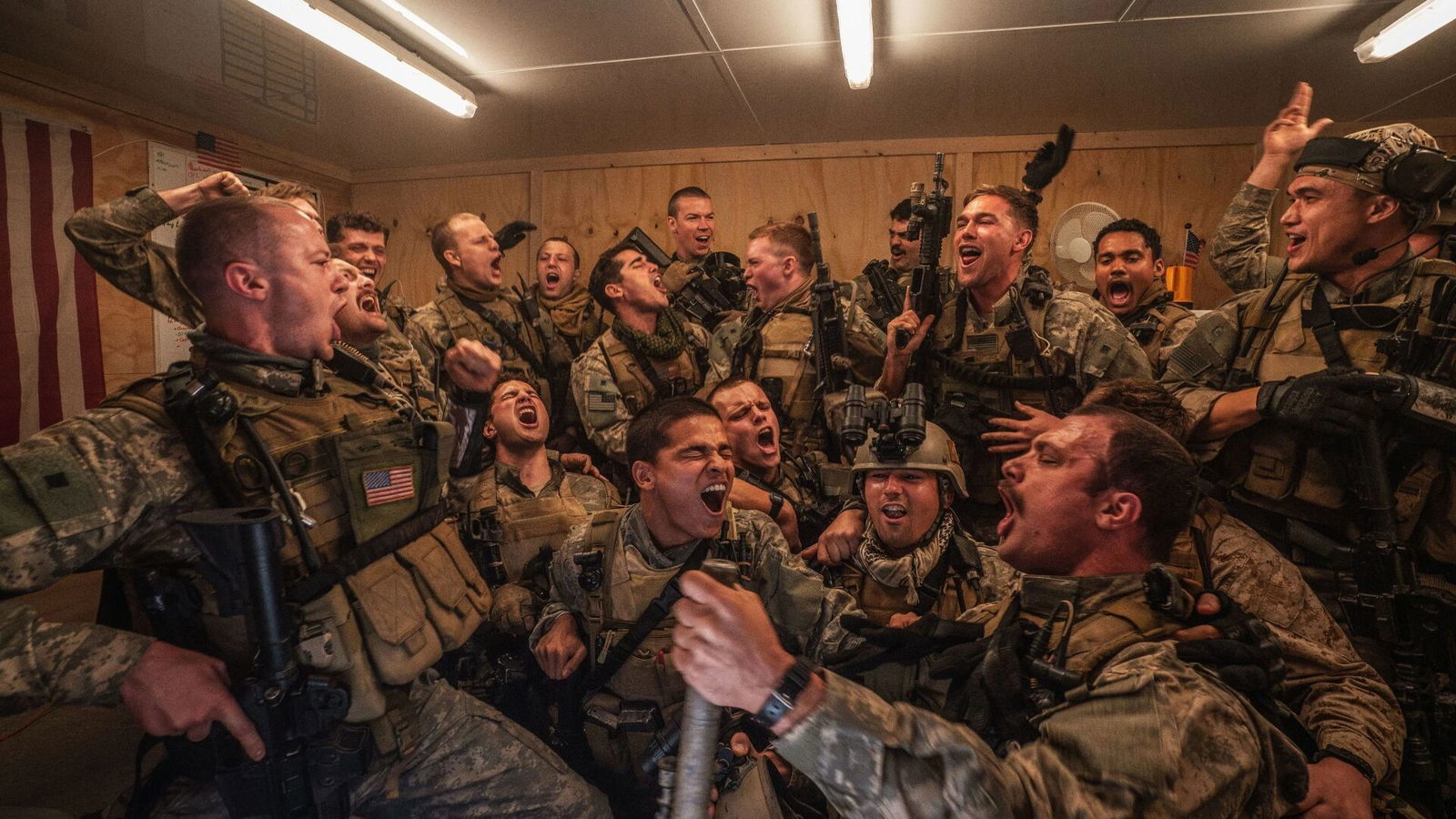
Set during the Iraq War, Warfare takes place on Nov. 19, 2006. It follows a platoon of Navy SEALs occupying a two-story apartment in the middle of Ramadi. Their objective is to monitor the surrounding neighbourhood for potential threats. But from the moment a grenade is lobbed into the e sniper’s nest, their surveillance operation turns into a desperate fight for survival. Iraqi insurgents converge on the apartment, launching attacks from all directions. With some soldiers dead and others critically wounded, all the remaining troops can do is hold their position and repel the enemy for as long as they can—until help arrives.
“Warfare is one of the most visceral experiences I’ve had in a theatre in a long time.”
As far as the characters go, we know little to nothing about the platoon as individuals—but that’s by design. The one thing that needed to be conveyed was their sense of brotherhood, how they operate and see themselves as a unit. It works thanks to great, physically demanding performances from the film’s ensemble cast: a who’s who of rising talent including D’Pharoah Woon-A-Tai (playing Mendoza), Cosmo Jarvis (as Miller), Will Poulter (as platoon captain Erik), Joseph Quinn, Michael Gandolfini and Kit Connor, to name a few.
Even though the dialogue is mostly military jargon, you still get a sense of each of their personalities—whether through small asides or how they react to moments of crisis. Although the first shot isn’t fired until nearly 30 minutes into the film, Warfare’s only moment of levity occurs in the first two: a scene where the soldiers huddle together, partying to the infamous raunchy music video for Eric Prydz’s “Call on Me.”
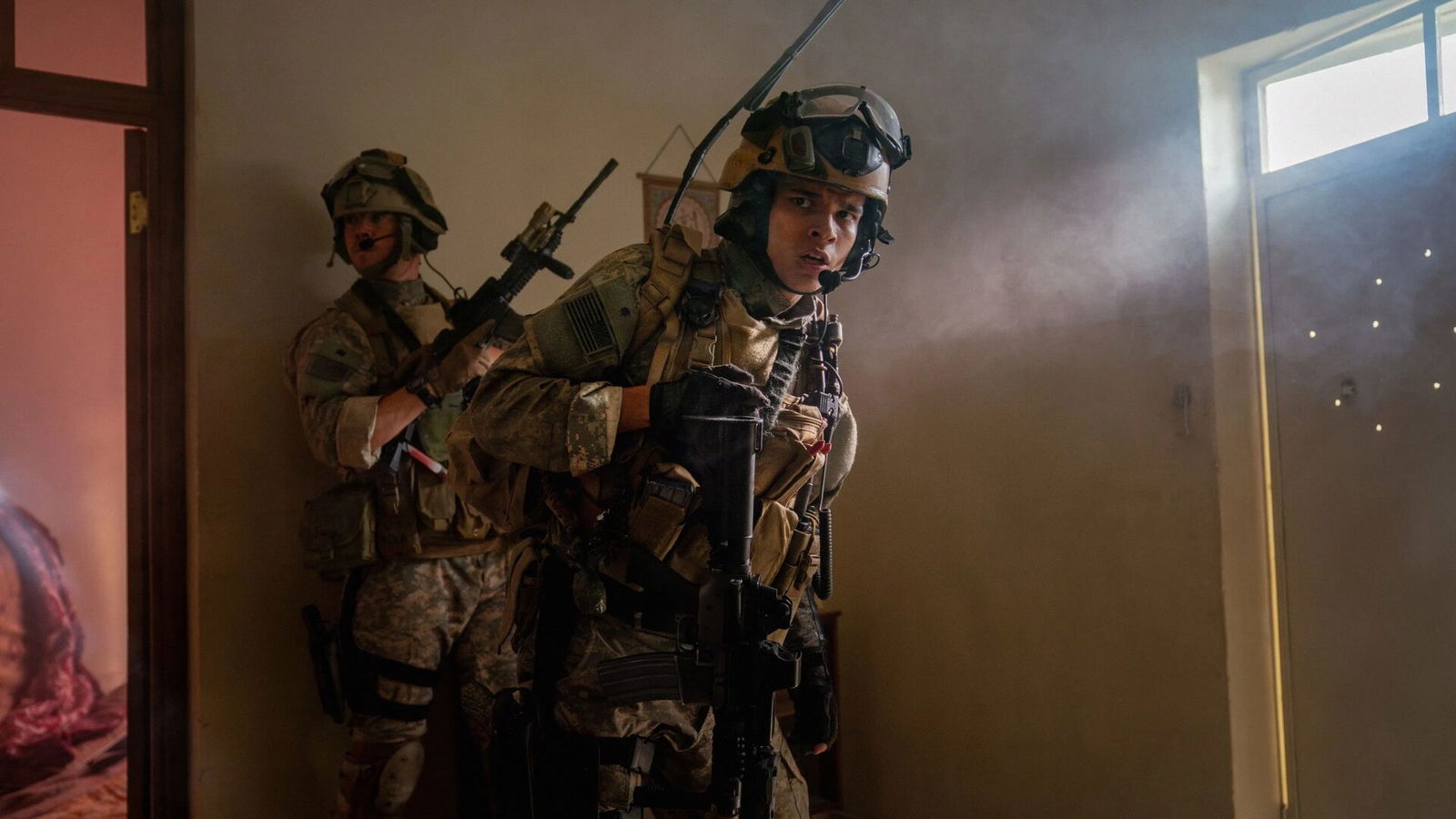
Immediately afterward, the tension leaps from zero to 10 and stays there as the platoon takes control of a building in the dead of night, confining the Iraqi families already living there to a single room. Similar to Garland’s previous film Civil War (on which Mendoza served as military adviser), Warfare remains steadfastly apolitical. That choice—arguably more so than Civil War—will either help or hinder the film, depending on the viewer.
“The one thing that needed to be conveyed was their sense of brotherhood, how they operate and see themselves as a unit.”
The film avoids propagandizing the U.S. military and doesn’t shy away from the darker aspects of the Americans’ treatment of Iraqi civilians. For instance, the sense of brotherhood among the platoon isn’t extended to their Iraqi interpreters, who feel like potential cannon fodder once everything starts going to hell.
However, there’s little said about those interpreters afterwards, and it’s frustrating to see them absent from the photo montage of the actors with their real-life counterparts that closes the film—especially considering they endured the same trauma as the rest of the squad.
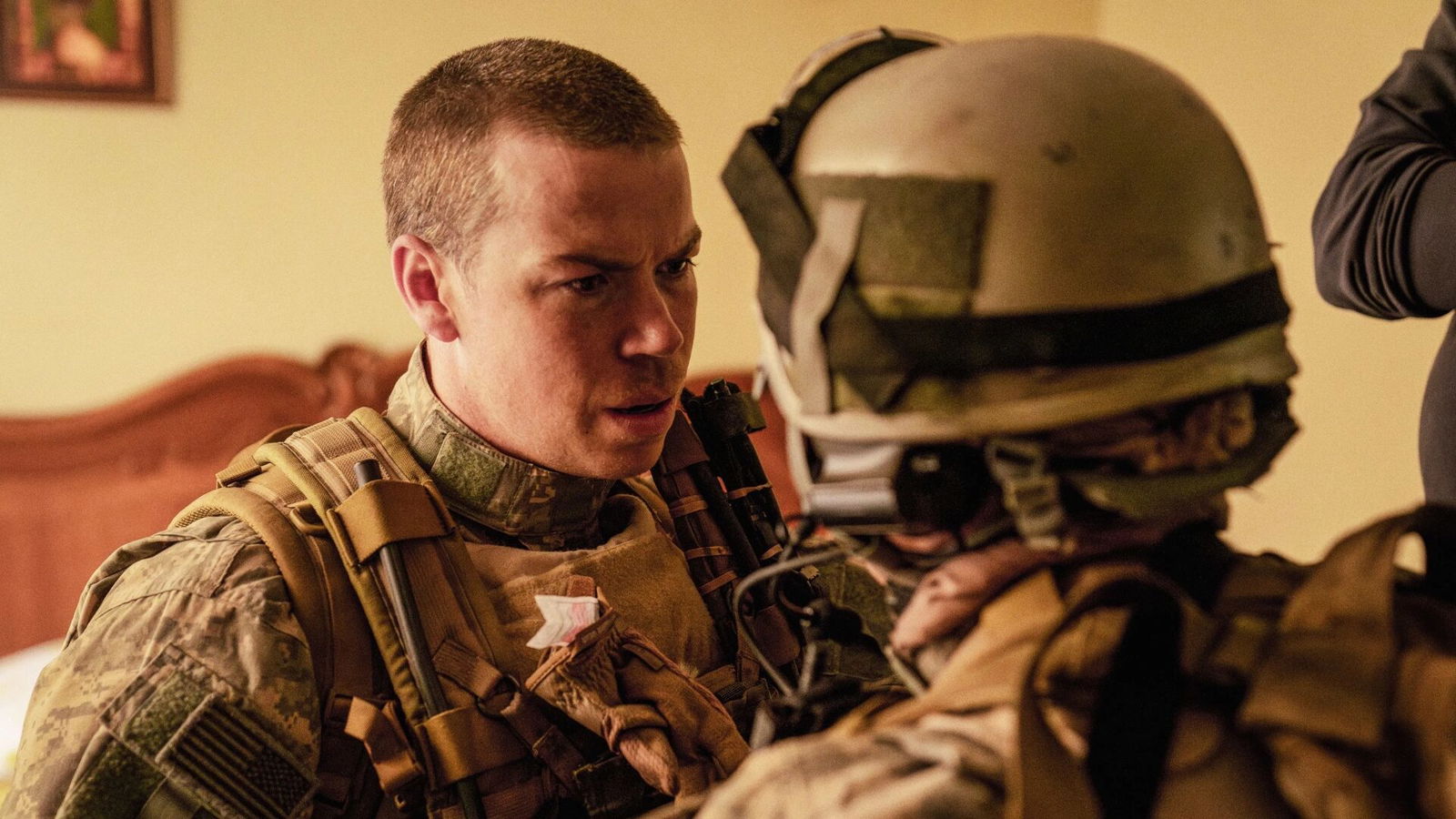
The shootouts in Warfare aren’t stylized, but they best represent what war is: a waking nightmare happening in real time for everyone involved—soldiers and bystanders alike. The action in the film is a technical masterwork. There are no attempts at Call of Duty-esque badassery. There’s no patriotic “ooh-rah” moment. There are no sweeping shots of massive battlefields. There’s no epic score booming in the background. In fact, there isn’t any music at all outside of the opening scene.
Instead, Garland and Mendoza keep you in the middle of the overwhelming chaos contained in this apartment, soundtracked by Glenn Freemantle’s deafening sound design—a cacophony of fired bullets, explosions, flying jets, barked orders and cries of pain. When an IED goes off, bodies and mental fortitude are shredded in equal measure. Warfare is one of the most visceral experiences I’ve had in a theatre in a long time. It’s a very tough watch, and I think its harrowing nature and lack of greater subtext may turn some people away—but it’s the most sobering look at war to come out in years, especially from Hollywood.
